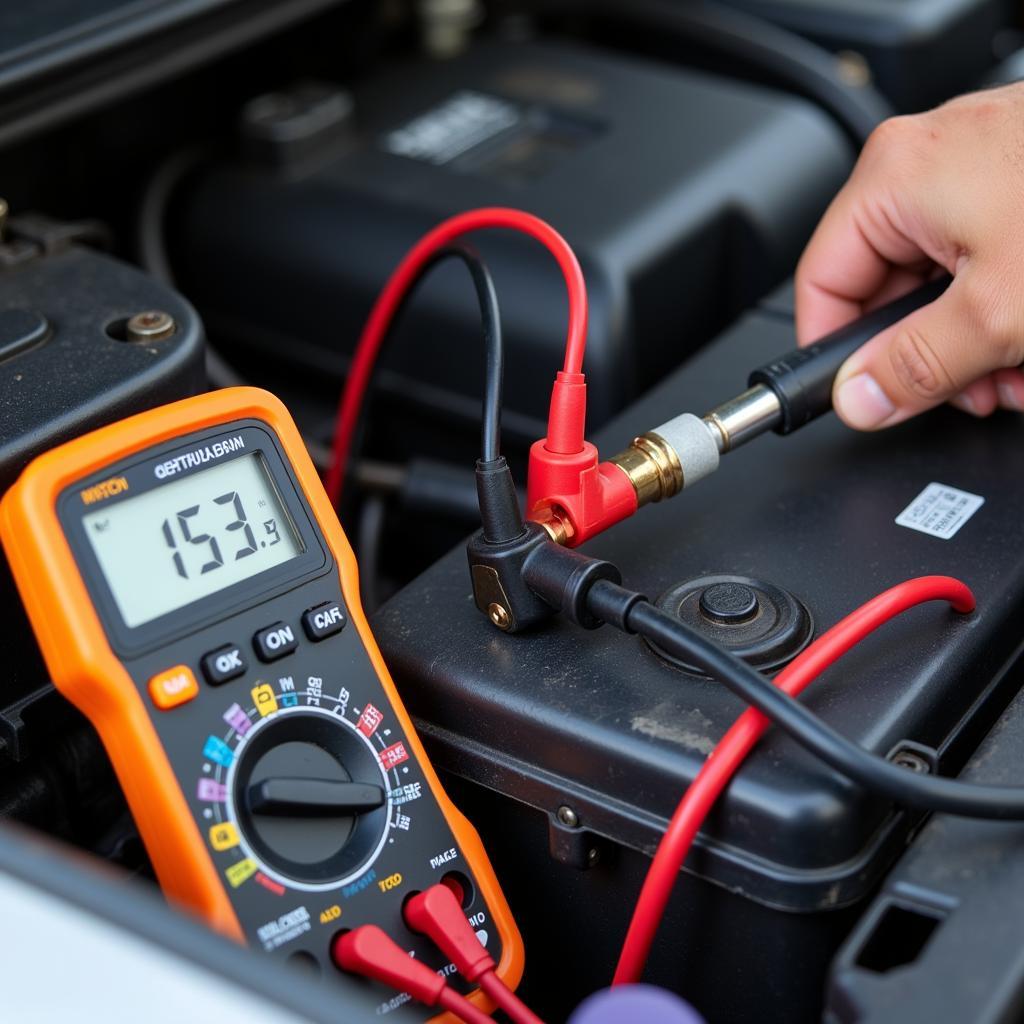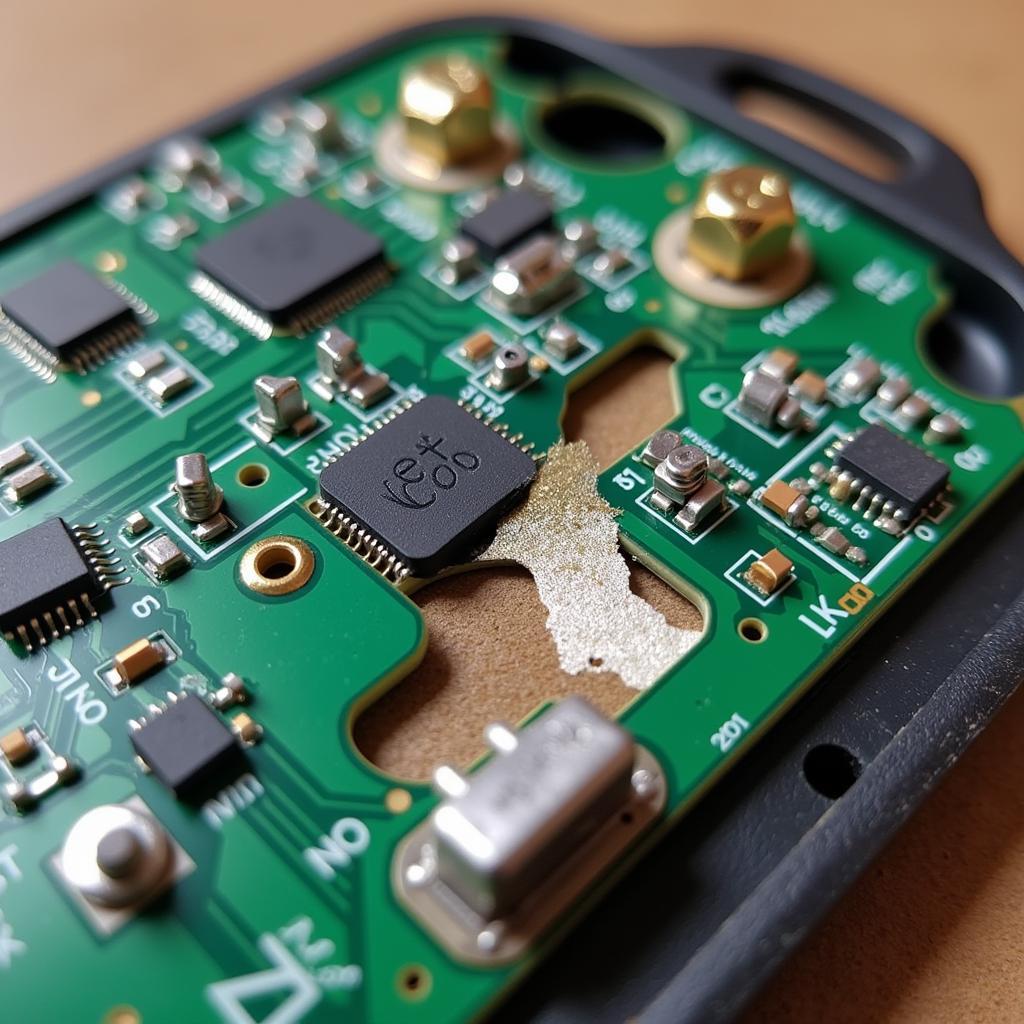Your car battery died for no reason? It can be incredibly frustrating, especially when you’re in a hurry. While it might seem like your battery gave up the ghost spontaneously, there’s almost always an underlying cause. This article will delve into the common reasons why car batteries die seemingly without warning and provide you with troubleshooting steps and solutions to get you back on the road.
Why Did My Car Battery Die for No Reason?
Several factors can contribute to a seemingly sudden battery failure. It’s important to understand these to prevent future occurrences. Often, what appears to be a “no reason” failure is actually a slow drain over time that eventually reaches a critical point.
Common Culprits Behind a Dead Battery
- Parasitic Drain: This is a common culprit. Even when your car is off, certain systems like the clock, radio memory, and alarm system still draw power. A faulty component or wiring issue can cause an excessive drain, leading to a dead battery.
- Leaving Lights On: This classic mistake is still a frequent reason for dead batteries. Interior lights, headlights, or even trunk lights left on can drain your battery overnight.
- Extreme Temperatures: Both extreme heat and extreme cold can affect battery performance. Heat can accelerate the chemical reactions inside the battery, shortening its lifespan. Cold can slow down these reactions, making it harder for the battery to provide enough power to start the engine.
- Old Age: Car batteries have a limited lifespan, typically 3-5 years. As they age, their ability to hold a charge diminishes. If your battery is nearing or past its expected lifespan, it’s more likely to die unexpectedly.
- Corroded Terminals: Corrosion on the battery terminals can disrupt the flow of electricity, preventing the battery from charging properly and eventually leading to a dead battery.
- Alternator Issues: The alternator is responsible for recharging the battery while the engine is running. A faulty alternator won’t charge the battery properly, eventually leading to a dead battery.
 Car Battery with Parasitic Drain
Car Battery with Parasitic Drain
Troubleshooting a Dead Car Battery
If your battery died, don’t panic! Here are some steps to troubleshoot the issue:
- Jump Start Your Car: This is the first step to get your car running again. Make sure you follow the proper jump-starting procedure to avoid damage to your vehicle’s electrical system.
- Check the Battery Terminals: Inspect the battery terminals for any signs of corrosion. If you see white, powdery buildup, clean the terminals with a wire brush and a baking soda and water solution.
- Test the Battery: Use a multimeter to check the battery voltage. A fully charged battery should read around 12.6 volts. A lower reading indicates a problem with the battery or the charging system.
- Test the Alternator: With the engine running, the voltage across the battery terminals should be around 14 volts. A lower reading suggests a faulty alternator.
Preventing Future Battery Problems
- Regularly Clean the Battery Terminals: Cleaning the terminals every few months can prevent corrosion and ensure a good connection.
- Turn Off All Lights and Accessories: Double-check that all lights and accessories are turned off before exiting your vehicle.
- Have Your Battery Tested Regularly: Get your battery tested at least once a year, especially if it’s older than three years.
- Consider a Battery Tender: If you don’t drive your car frequently, a battery tender can help maintain the battery’s charge.
Expert Insights
“A simple battery test can save you a lot of headaches down the road,” says John Smith, Lead Automotive Technician at Smith Auto Repair. “Regular maintenance is key to preventing unexpected battery failures.”
 Car Battery Maintenance Tips
Car Battery Maintenance Tips
Conclusion
A car battery that “died for no reason” is rarely a spontaneous event. By understanding the common causes, troubleshooting steps, and preventative measures, you can avoid the frustration of a dead battery and keep your car running smoothly. Don’t wait for your battery to die again; take proactive steps today!
“Addressing battery issues promptly can prevent further damage to your vehicle’s electrical system,” adds Jane Doe, Electrical Systems Specialist at Doe Automotive Solutions.
FAQ
- How long does a car battery last? Typically 3-5 years, but this can vary depending on usage and climate.
- Can I jump-start my car myself? Yes, but it’s important to follow the correct procedure to avoid damage.
- How can I tell if my alternator is bad? A low voltage reading across the battery terminals while the engine is running is a sign of a faulty alternator.
- What is a parasitic drain? It’s a constant drain on the battery even when the car is off.
- How often should I clean my battery terminals? Every few months is recommended.
- What is a battery tender? A device that maintains a battery’s charge when the car isn’t being used.
- What should I do if my battery keeps dying? Consult a qualified mechanic to diagnose and fix the underlying issue.

